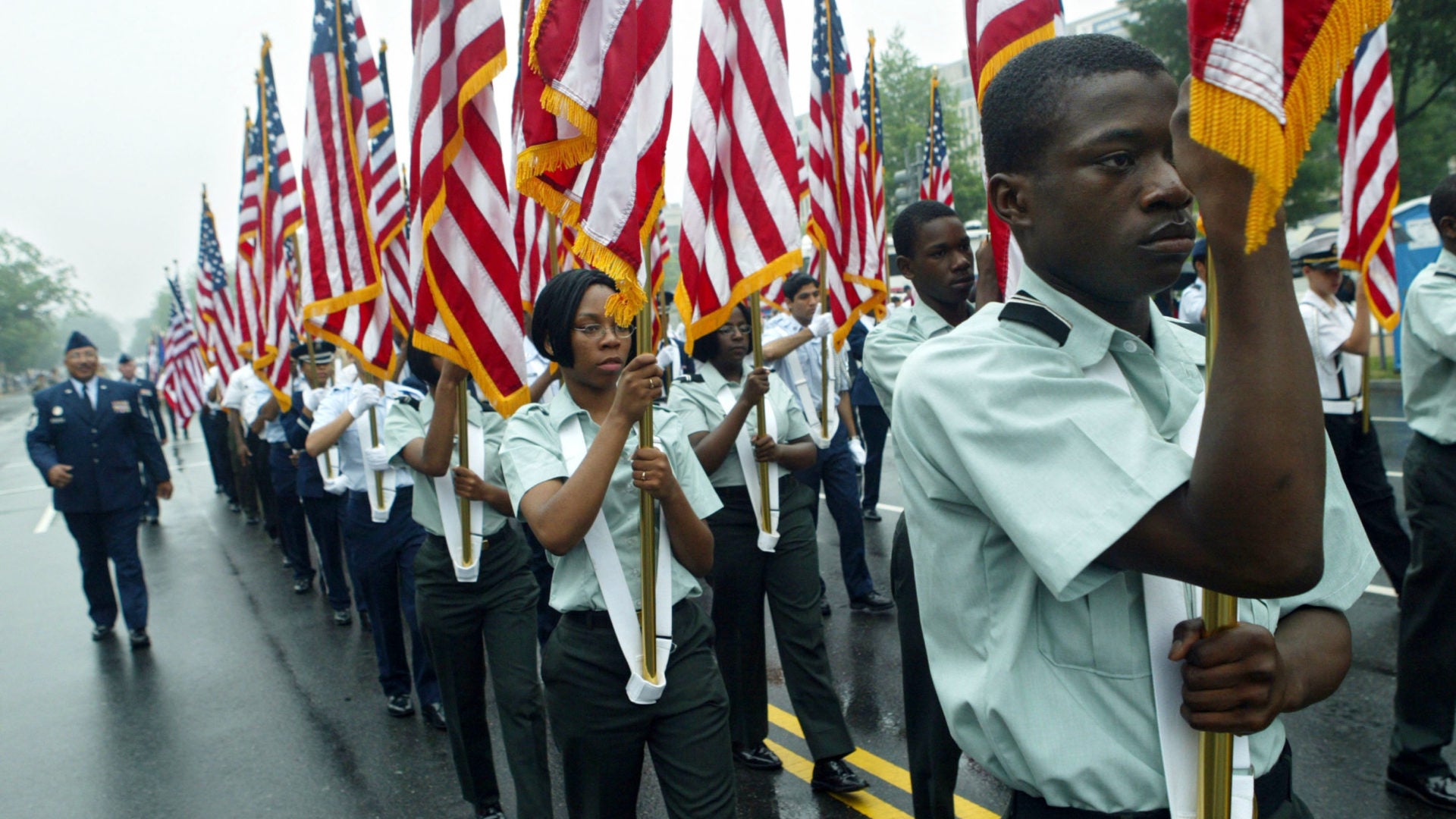
It’s been 242 years since America declared its independence as a sovereign nation no longer under England’s iron fist.
That’s a long time to carry a torch for the founders’ stated intention to create a democratic republic. Much discourse has focused on their interpretation of what that meant. Over time the discourse has shifted as culture has. Some argue that those feeling religious persecution settled here with an open heart and mind, though the bloodshed they wreaked against Brown people in order to stake that claim is well-documented.
Some say the documents that bound this land as a nation were narrow in their intended audience, even if the syntax feels aspirational and expansive and even if, with time, that language has billowed to explicitly bring others into the fold.
The truth is, Black and Brown people were not counted as human beings when America first came into being. Native people were pushed out of their homes, killed, and banished to the unfavorable lands in the West that were devoid of fertility and vitality.
Today, the significance of Independence Day most commonly is communicated in the form of commodification and celebration with blinders on, a recurring practice in our nation’s history. We engage a diluted version of this anniversary of independence with hot dogs and exploding, colorful gun powder.
Some take a knee as others put a hand over their heart. The warm dampness of the evening air kisses our faces as the National Anthem is belted out before the first pitch. Only, “the land of the free and the home of the brave,” means something quite different to the descendants of George Washington than it does to those of George Washington Carver.
Black bodies were sold as slaves from the time this country was put on the map until well after the practice was outlawed following the Civil War. Indentured servitude and deeply ingrained habits extended the look and feel of slavery for many years. Slavery never went away. It just morphed into prohibitive laws like Jim Crow, which prevented Black people from entering public life in any sort of dignified or integrated way. When that practice became reviled, it reinvented itself in the form of voter disenfranchisement and redlining and mass incarceration.
The truth is, my true Independence Day hasn’t yet arrived.
I acknowledge that I inhabit a Black body and am able to speak to you from a relatively privileged position. I acknowledge that I have made it farther than any family member who came before me. I know that we have made progress, and I know that people of color will soon be the majority population in America in just a few years.

But as I sat down recently to help my son with his fourth grade project on the Bill of Rights and our Founding Fathers, I was reminded of the unequal application of the Seventh and Eighth Amendments for my brothers and others like Kalief Browder, who have unjustly spent time behind bars because of extractive practices like money bail. I’m acutely aware that Black and Brown people are many great things in spite of the systemic racism that continues to pervade every aspect of our daily lives. We see this in everything from health disparities to employment and job skills gaps, to wealth creation and ownership.
Black women are two to six times more likely to die in childbirth compared with their white counterparts, regardless of educational level or income. Black people are more than five times more likely to be incarcerated than are white people, making up 32 percent of America’s population but accounting for a disproportionate 56 percent of the prison population.
And the racial wealth gap continues to increase; the median white family has 41 times more wealth than the median Black family.
If we’re to chip away at the downstream effects of racism over the past 242 years, we must generate shared wealth. We must mobilize community assets and ensure that the people who make up the communities get to decide how wealth gets created in them. We must deepen civic engagement so that those operating at the margins can inform policy and drive the change that benefits more people in the equation and improves community progress.
It is only through economic democracy, harnessing existing community assets to capture value and promote inclusive economic development, that we can begin to really dismantle the gargantuan disparities that were directly seeded in the very genesis of this country.
So, on this Independence Day, let us take our moment to toast our country and the progress we’ve made, and let’s double down on our commitment to ensuring our tomorrow is even closer to becoming the land that’s made for you and me.